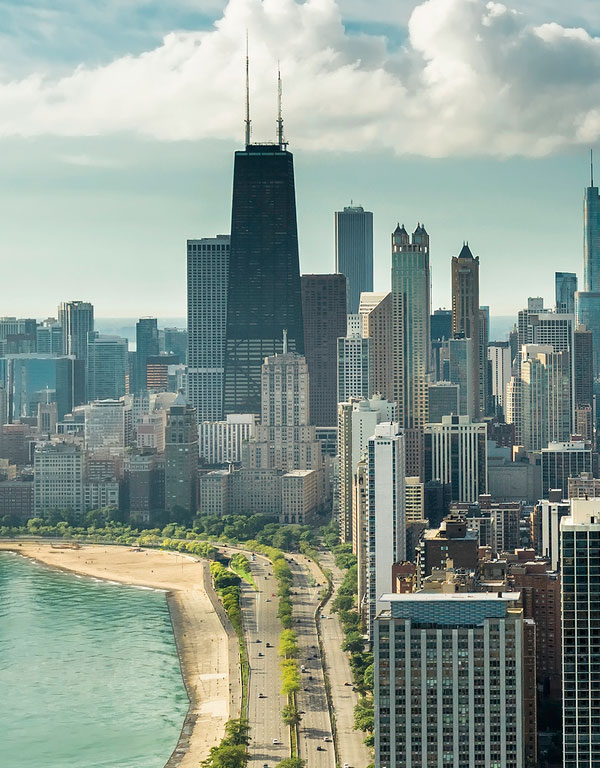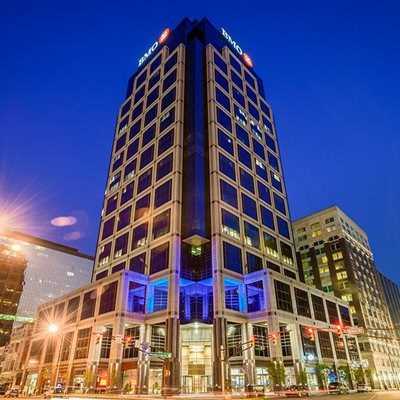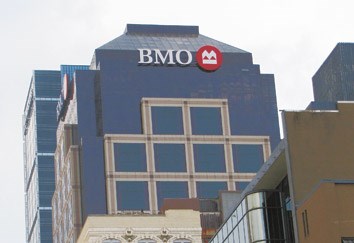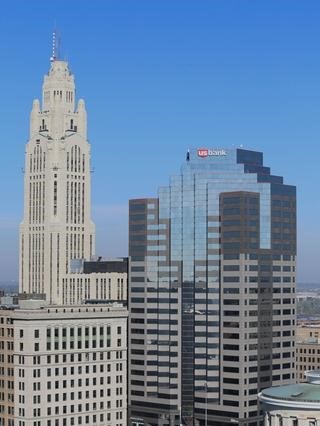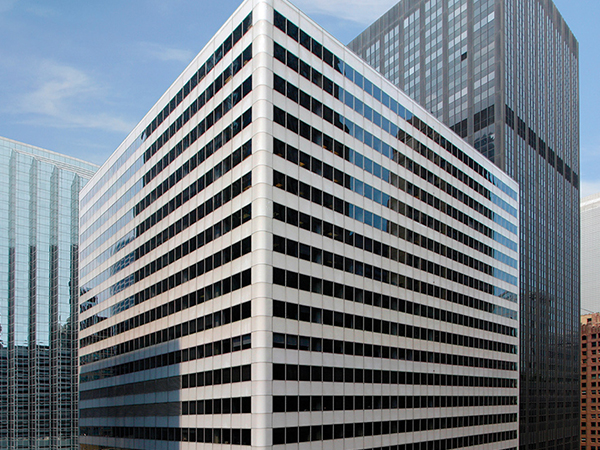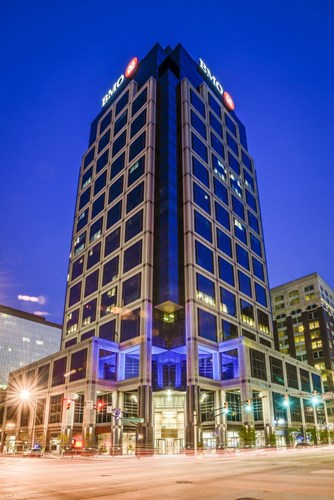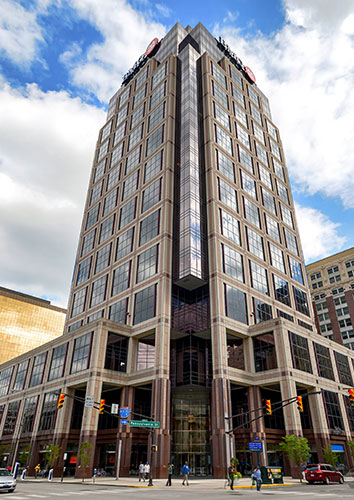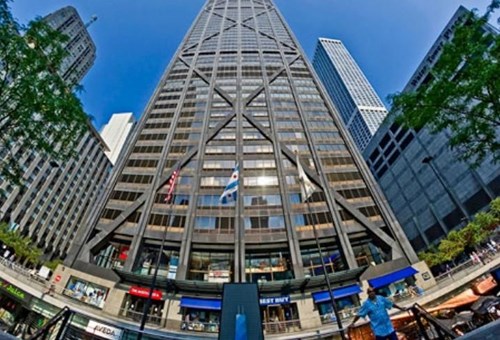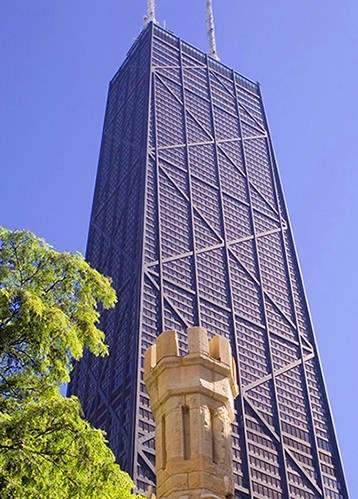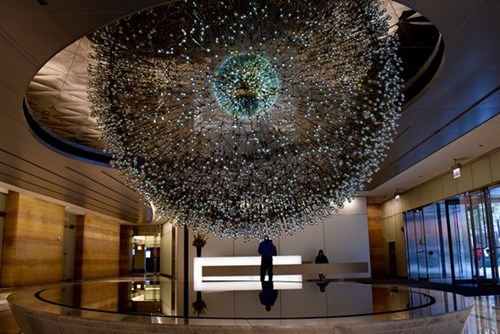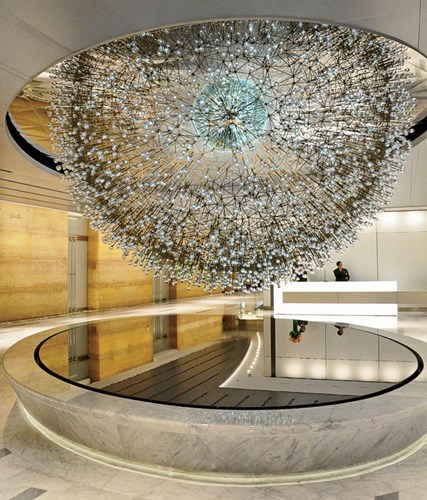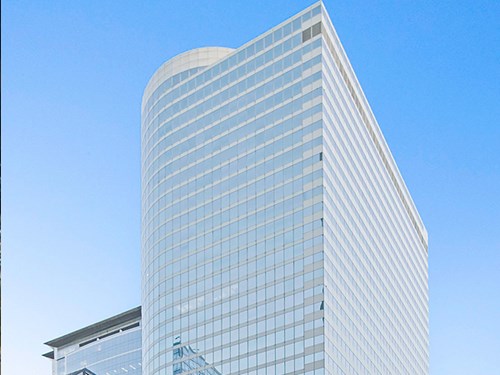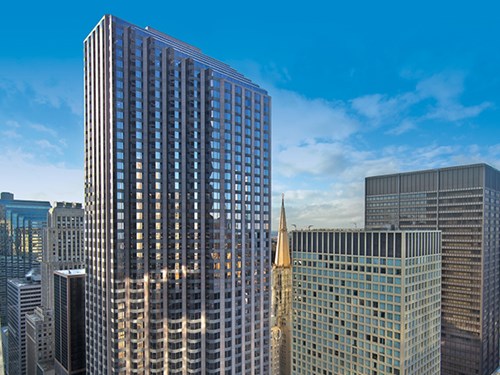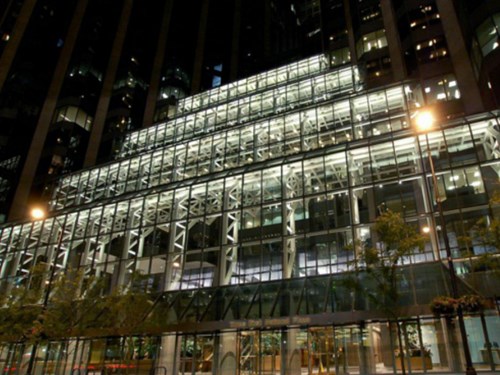
Your next checkup could be at the former John Hancock Center
By Danny Ecker
The landmark tower's owner looks to fill vacant corporate office space with doctors and clinics.
See full article at https://www.chicagobusiness.com/commercial-real-estate/former-john-hancock-building-seeks-health-care-tenants-fill-vacant-corporate
The space gave Hearn the chance to dedicate a portion of the building for clinical space, something he says he had been eyeing since Lurie moved some of its office space into the Hancock in 2018. The children's hospital has more than doubled its space since then to more than 100,000 square feet.
Core to his thesis is that Streeterville's 13 million-square-foot supply of health care real estate is nowhere near enough to handle the demand in the neighborhood. He cites a projection from health care consulting firm Advisory Board that demand for services including orthopedics, physical therapy and pain management within five miles of Streeterville, for example, will all jump by around 25% over the next five years.
"That demand will continue to be there, and will have to be serviced," Hearn says.
Major health care systems are also collectively pushing more services away from hospital settings and into outpatient facilities that have the infrastructure to handle clinical testing and lab work, fueling the expansion of the medical office sector during the pandemic. While traditional office demand has been flagging during the pandemic, average occupancy at medical office buildings in the 50 largest U.S. markets in the third quarter of 2021 was almost 92%, its highest level in four years, according to health care real estate research firm Revista.
In Streeterville, the Northwestern hospital system has such a strong appetite for property that it bought the Hyatt Centric Chicago Magnificent Mile hotel adjacent to its campus earlier this month, an apparent step to control more real estate that it could one day reposition for medical use.
Bolstered by those tailwinds and Streeterville's continued growth as a medical hot spot, Hearn is devoting one of his tower's north entrances, a pair of elevators and a portion of its parking garage to the medical office block to provide a quality patient experience without disrupting the building's traditional office users.
"This isn't 'gee whiz, we're going to throw a few trial balloons and see if we attract any attention.' We're committed to doing this, and there are significant dollars being spent now and in the future to make this happen," says Hearn, who hired the health care advisory team from Cushman & Wakefield to lead the leasing effort. "We think it will be a race for tenants to get a spot here."
The move still comes with plenty of risk. The pool of prospective users of medical office space is much smaller than that of traditional offices, and building out clinical space—landlords typically help foot the bills—is far more expensive. Hearn estimated the entire investment in the property—including physical updates to the building, tenant buildouts and leasing commissions—could easily approach $100 million. He is still in the process of refinancing more than $200 million in debt on the building to be able to fund the project.
The building must also incorporate more clinical space without scaring off traditional office tenants. Workers sharing a lobby with sick patients could be off-putting for companies that are now trying to give employees more reasons to show up rather than work remotely.
Hearn says the design of medical space is mindful of keeping it separate from other office users, but doesn't expect problems, citing companies' successful coexistence with tourists visiting the building's observation deck.
Helping to offset the higher buildout costs is that most physician groups and hospital systems pay higher rents than traditional office rents. Medical office leases also tend to be longer-term deals and come with the strong credit of a hospital system, which have become even more valuable as the pandemic has pushed many traditional office users to rethink their workspace needs.
Medical office users are "sticky tenants that will grow within your building," says CBRE First Vice President Dan Persa, who has represented several tenants leasing offices in the North Michigan Avenue submarket. "Throughout the pandemic, a lot of those traditional office users have been shaky on those grounds."
One potential sweetener for hospital systems is that Hearn is dangling the naming rights to the tower. He says those rights are a "separate opportunity" from the medical office tenant hunt, but that a large user from the health care sector could fit the bill.
Peter Westmeyer, whose Chicago-based Remedy Medical Properties is the nation's largest owner of health care properties, says naming rights to such a well-known building could be attractive to users like Rush Health, NorthShore University HealthSystem or other competitors in the area that want to plant a prominent flag in the heart of the city.
"There's definitely a turf war in Chicago," he says, "and it wouldn't surprise me if somebody else wanted to jump in there and compete for the more urban downtown market."

